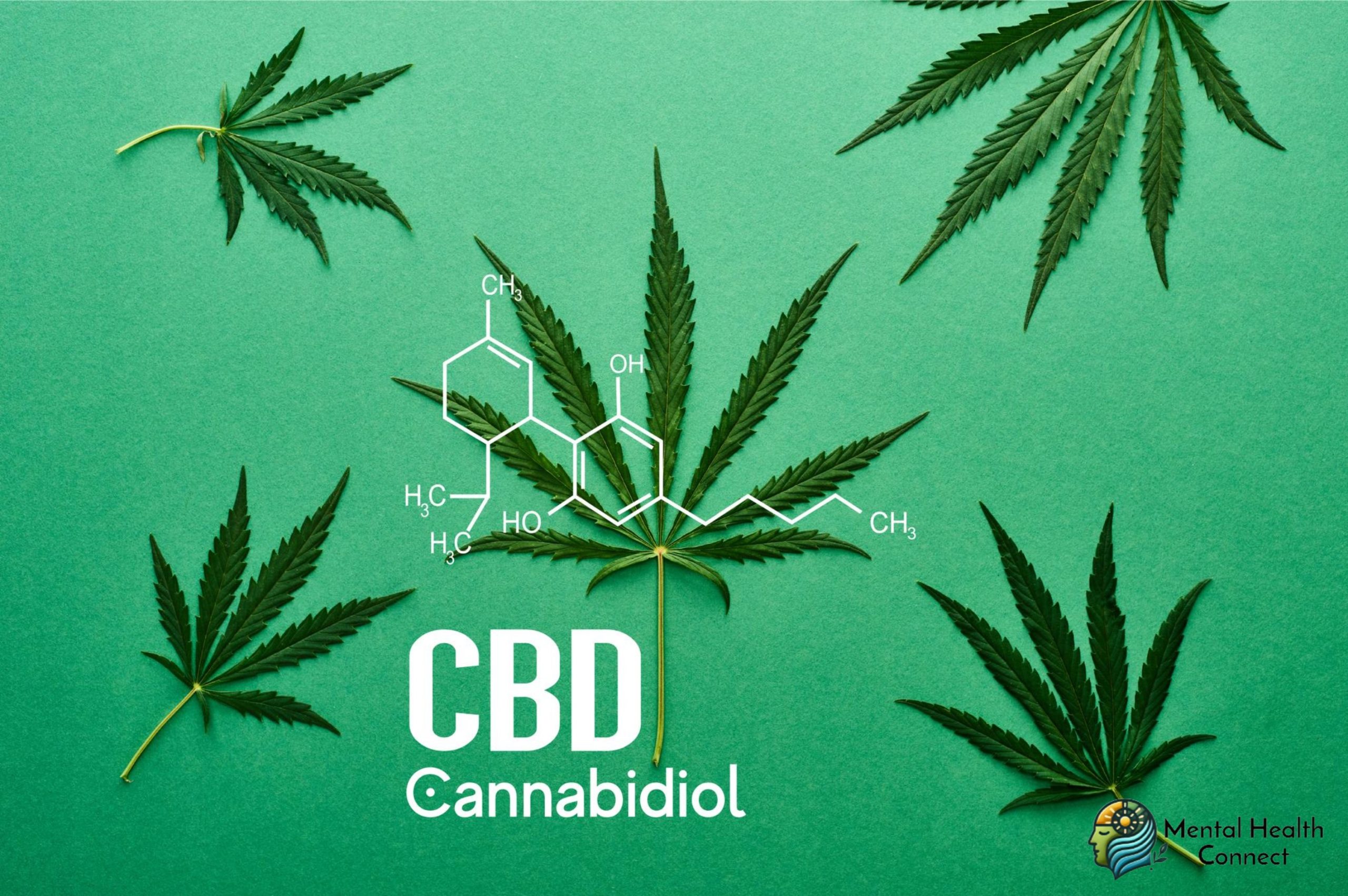CBD for Anxiety and OCD: Fact vs. Fiction

In recent years, CBD (cannabidiol) has emerged as a popular alternative treatment for various mental health conditions, particularly anxiety disorders and Obsessive-Compulsive Disorder (OCD). With countless claims circulating online and in wellness communities, it can be challenging to separate scientific evidence from marketing hype. This blog aims to examine what research actually tells us about CBD’s effectiveness for anxiety and OCD, helping you make informed decisions about your mental health care.
Understanding CBD: The Basics
The Cannabis sativa plant contains more than 100 different types of cannabinoids, including CBD. Unlike its cousin THC (tetrahydrocannabinol), CBD doesn’t produce psychoactive effects in other words, it won’t get you “high.” This non-intoxicating property has made CBD an attractive option for those seeking symptom relief without the mind-altering effects associated with cannabis use.
CBD interacts with the body’s endocannabinoid system (ECS), a complex cell-signaling system that plays a role in regulating various functions and processes, including:
- Mood regulation
- Stress response
- Sleep
- Immune function
- Pain perception
This interaction with the ECS forms the theoretical basis for CBD’s potential mental health benefits.
CBD and Anxiety: What the Research Shows
The Evidence Supporting CBD for Anxiety
Several studies suggest CBD may have anxiolytic (anxiety-reducing) properties:
- A 2019 study published in The Permanente Journal found that 79.2% of participants experienced reduced anxiety scores after CBD treatment
- Research published in Neurotherapeutics suggests CBD may help with multiple anxiety disorders, including generalized anxiety disorder, social anxiety disorder, and PTSD
- Neuroimaging studies have shown CBD can alter blood flow to regions of the brain associated with anxiety, particularly the amygdala and hippocampus
These findings are promising, but it’s important to note that many studies have been conducted on animals or with small human sample sizes, limiting their generalizability.
The Limitations of Current Research
While preliminary evidence is encouraging, several important caveats exist:
- Most clinical studies use much higher CBD doses (300-600mg daily) than typical commercial products contain
- Long-term effects of CBD use remain largely unknown
- Individual responses to CBD vary significantly based on factors like body chemistry, the specific anxiety disorder, and method of consumption
- Few studies directly compare CBD to established anxiety treatments like SSRIs or cognitive behavioral therapy
CBD and OCD: A Less Explored Frontier
Current Understanding
Research specifically examining CBD’s effects on OCD is significantly more limited than anxiety research:
- A 2020 review in Cannabis and Cannabinoid Research concluded that while preclinical evidence suggests cannabinoids could have anti-compulsive effects, human studies focused specifically on OCD are scarce
- Some research indicates CBD may influence the serotonin system, which plays a role in OCD, but direct evidence for OCD symptom improvement is preliminary
- A small 2020 study published in the Journal of Affective Disorders found cannabis products with higher CBD levels were associated with larger reductions in compulsive behavior
The Reality Check
For OCD specifically:
- There are currently no large-scale clinical trials examining CBD as a standalone treatment
- The optimal dosage, delivery method, and treatment duration remain unknown
- Most evidence comes from animal models or is extrapolated from anxiety research rather than OCD-specific studies
Common Misconceptions About CBD
Fiction: “CBD cures anxiety and OCD”
Fact: While CBD may help manage symptoms for some individuals, there’s no evidence that it “cures” these conditions. Mental health disorders typically require comprehensive treatment approaches, potentially including therapy, medication, lifestyle changes, and social support.
Fiction: “All CBD products are equally effective”
Fact: The CBD market remains largely unregulated in many regions. Product quality, concentration, and purity vary dramatically. A 2017 study in JAMA found that nearly 70% of CBD products tested were mislabeled regarding cannabinoid content.
Fiction: “If CBD is natural, it must be completely safe”
Fact: While CBD generally has a good safety profile, it can cause side effects including:
- Fatigue
- Diarrhea
- Changes in appetite and weight
- Potential drug interactions with medications like blood thinners
Additionally, the FDA has raised concerns about potential liver damage from high-dose CBD use.
Fiction: “CBD works immediately”
Fact: Unlike medications like benzodiazepines that may provide rapid relief, CBD often requires consistent use over time to potentially achieve anxiety-reducing effects. Many studies showing positive results used CBD consistently for weeks, not as a single-dose intervention.
Navigating CBD Use Responsibly
If you’re considering CBD for anxiety or OCD, consider these evidence-based recommendations:
Talk to Healthcare Providers
Always talk to your doctor about using CBD, particularly if you:
- Take other medications
- Have liver disease
- Are pregnant or breastfeeding
- Have a complex mental health condition
Look for Quality Products
When selecting CBD products:
- Choose options that provide third-party lab testing results
- Look for products that specify the exact CBD content
- Consider the extraction method (CO2 extraction is generally considered superior)
- Research the company’s reputation and manufacturing practices
Start Low and Go Slow
If your healthcare provider approves CBD use:
- If necessary, start with a low dosage and raise it gradually.
- Monitor effects systematically, perhaps keeping a symptom journal
- Be patient, as effects may take time to develop
Integrate with Established Treatments
Rather than viewing CBD as a replacement for evidence-based treatments, consider how it might complement:
- Cognitive behavioral therapy (CBT)
- Exposure and response prevention (ERP) for OCD
- Mindfulness practices
- Lifestyle modifications that support mental health
The Future of CBD Research for Anxiety and OCD
The research landscape for CBD is rapidly evolving. Several promising developments include:
- Ongoing clinical trials specifically examining CBD for OCD
- Research into optimal delivery methods and formulations
- Studies examining how CBD might enhance traditional treatments
- Investigation into genetic factors that might predict CBD responsiveness
As scientists continue to explore these questions, our understanding of CBD’s potential role in mental health treatment will become clearer.
When it comes to CBD for anxiety and OCD, the current state of evidence can be summarized as “promising but preliminary.” While some research supports CBD’s potential benefits for anxiety symptoms, evidence specific to OCD remains limited. As with any wellness decision, approach CBD with informed caution consult healthcare providers, prioritize product quality, maintain realistic expectations, and consider how CBD might fit into a comprehensive treatment approach rather than serving as a standalone solution.
The intersection of cannabinoid science and mental health research represents an exciting frontier, but one that still requires substantial scientific exploration before definitive recommendations can be made.
-
 How to Support Someone with OCDApril 17, 2025
How to Support Someone with OCDApril 17, 2025 -


Leave a Reply